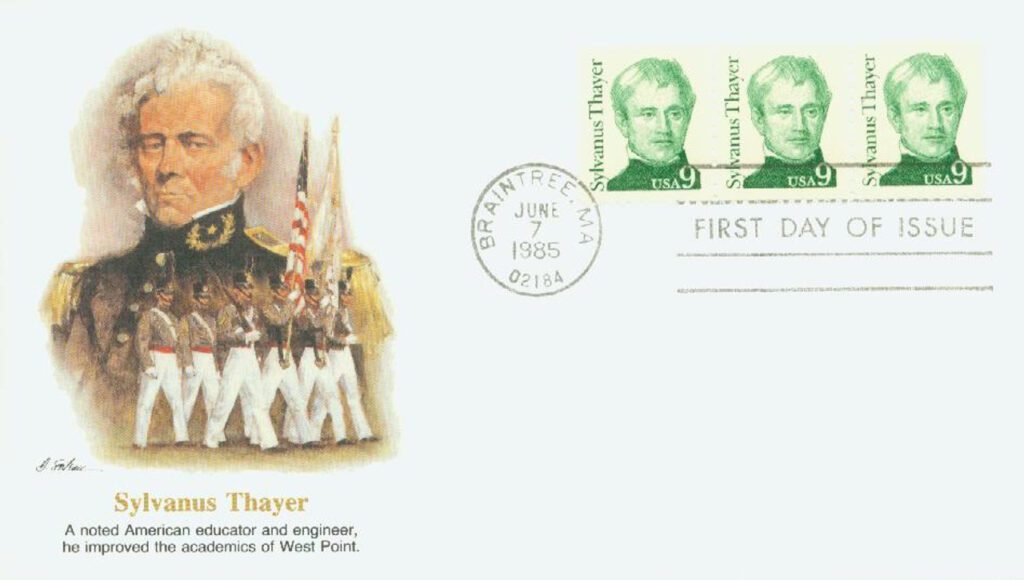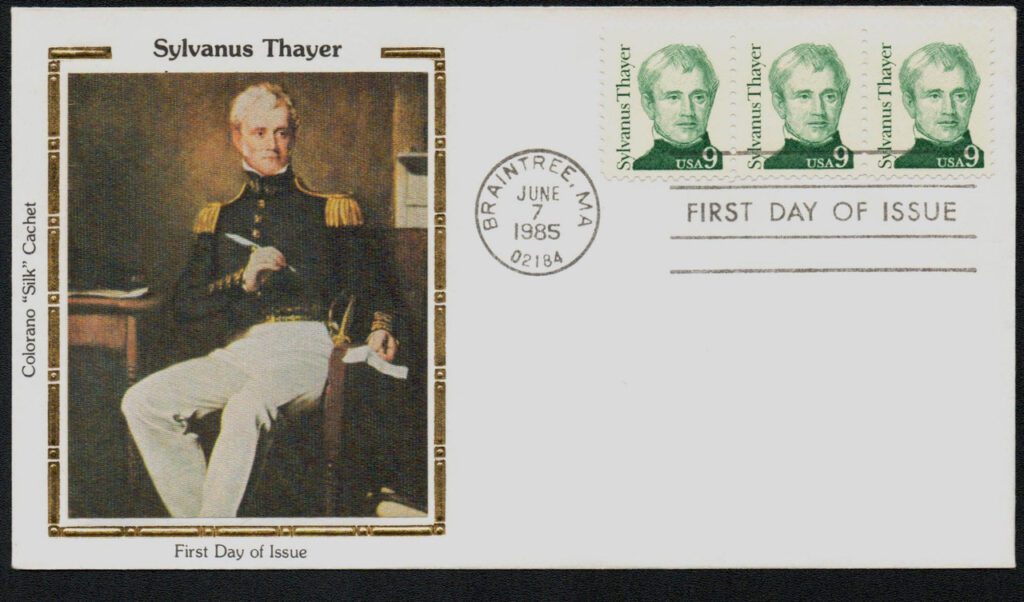“The Father of West Point,” Sylvanus Thayer was born on June 9, 1785, in Braintree, Massachusetts. During his 16 years as superintendent, Thayer transformed West Point into one of the finest military academies in the world.
Thayer lived with his parents on their family farm until he was eight years old, at which time he went to live with his uncle in New Hampshire. He attended school there and went on to study advanced mathematics at Dartmouth College and graduated as the valedictorian of his class.
Thayer then received an appointment to West Point from President Thomas Jefferson. He completed his coursework in one year and was made a second lieutenant in 1808. Thayer’s first job in this role was to oversee the construction of Fort Warren in Boston Harbor. After directing the defense of Norfolk, VA, during the War of 1812, he was promoted to major.
In 1815, Thayer went to Europe to study at the French École Polytechnique for two years. While there, he assembled a large collection of science and mathematics books. Upon his return to the US in 1817, President James Monroe appointed him superintendent of West Point to replace the resigning Alden Partridge.
Thayer became known as “the Father of West Point” because he reshaped the United States Military Academy. Under his leadership, West Point became the nation’s first college of engineering. Thayer’s curriculum reforms became the model for technical education across the United States. He instituted military discipline and a rigorous course of study. By improving the curriculum and class structure, he created one of the finest military academies in the world.
After 16 years as head of West Point, Thayer resigned in 1833 due to a disagreement with President Andrew Jackson. The following year he was made an associate fellow in the American Academy of Arts and Sciences. Thayer then returned to military service with the Army Corps of Engineers. He spent most of the next 30 years as the chief engineer for Boston. Thayer oversaw the construction of Forts Warren and Independence.
During this time Thayer was a member and later president of the Board of Engineers for Coast Defenses. He also briefly commanded the Corps of Engineers for a year when its commander took a leave of absence. Due to an extended sick leave, Thayer didn’t participate in the Civil War. However, Fort Thayer was built and named after him in 1861 in Washington, DC. He retired from the Army on June 1, 1863.
In 1867, Thayer donated $40,000 to the trustees of his alma mater, Dartmouth College, to create the Thayer School of Engineering. Two years later, he helped create the Military Academy’s Association of Graduates. After his death on September 7, 1877, the Thayer Academy was established in Braintree, Massachusetts, according to his wishes. And in 1958, West Point established the Sylvanus Thayer Award.
| FREE printable This Day in History album pages Download a PDF of today’s article. Get a binder or other supplies to create your This Day in History album. |
Discover what else happened on This Day in History.






West Point was the premier place to go for Sons of Southern
Plantation owners and other Southerners who wanted a Military
Career, Their Northern counterparts, sons of those with means,
looked down on the USMA and instead went to Harvard, Yale and
other Ivy League colleges. Those who lived in the North and went
to West Point were those of limited means who couldn’t afford a
good University education looked to West Point as their best chance.
This included Grant, Sherman, Custer and Sheridan. The Civil war
should have been short and sweet BUT the preponderance of
Southern West Point graduates, who cut their teeth in the Mexican-
American War, showed superior leadership to the Northern
Generals and kept them into the was until the overwhelming
Manpower, Industrial might, rail systems and communications,
finally were to much for even the South’s great leadership on
the battle field.
If these traders to the Union were so superior, then they would have won the war. If I recall it was one West Point grad who surrendered to his “lesser” cadet that ended a terrible war. And if I recall, that “lesser” Cadet went on to become a US President. Wasn’t it also the Confederate President who was hiding dressed as a woman when captured after the south surrendered? West Point was and is a great military college home to smart young men and women not a home for traders. Your explanation Mr. Snyder doesn’t stand up well.
I appreciate reading about this gentleman who served our nation well. Great article, thank you Mystic!
Thank you for this informative article and informative reply.